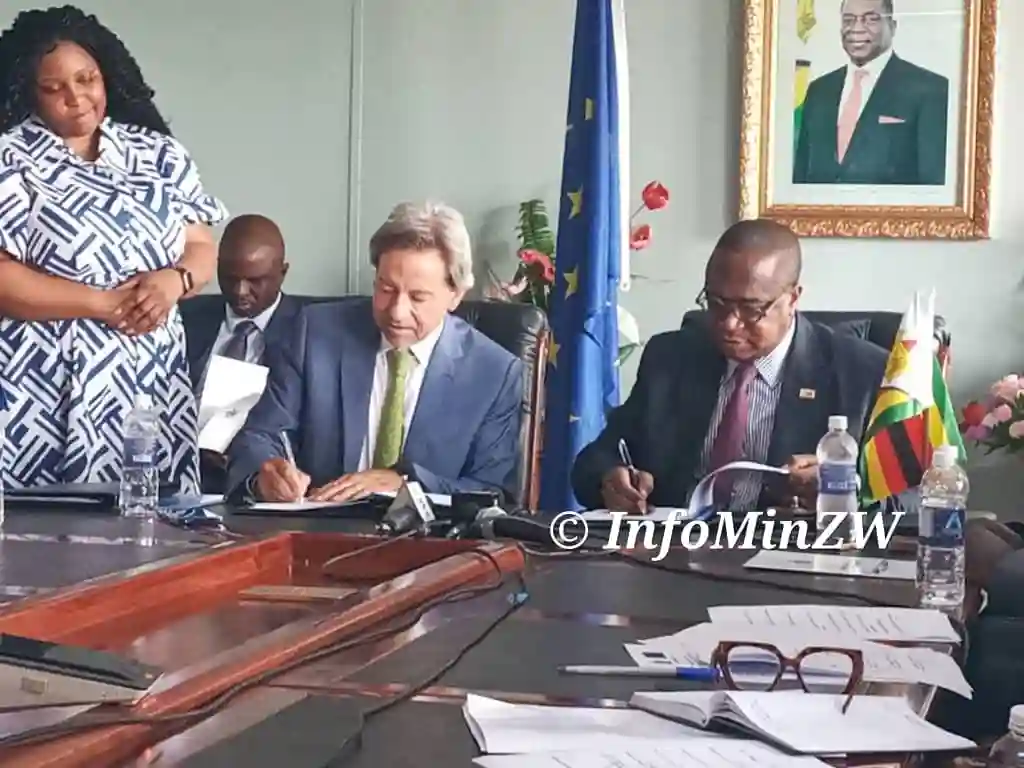The European Union (EU) on Wednesday extended €75 million (approximately US$81 million) to Zimbabwe as part of its efforts to help the southern African nation address the impacts of climate change and foster socio-economic development.
The agreement was signed in Harare by Zimbabwe’s Minister of Finance, Economic Development and Investment Promotion, Mthuli Ncube, and the EU Ambassador to Zimbabwe, Jobst von Kirchmann.
This funding represents the second phase of the EU’s €148 million (US$160 million) allocation to the Zimbabwe Multi-Annual Indicative Programme (2021-2024).
During the signing ceremony for four financing agreements, Ncube detailed that the funds will support various initiatives: €26 million for agri-value chain development, €26 million for biodiversity enhancement, €16 million for transparent and accountable governance, and €7 million for gender and women’s economic empowerment. Said Ncube:
Zimbabwe remains grateful for the EU support, and today marks another milestone in our cooperation. The four financing agreements will be channelled towards implementation of the Agri-Value Chain Development in Zimbabwe, Biodiversity enhancement for resilience building in Zimbabwe, Transparent & Accountable Governance in Zimbabwe and Gender Equality and Women’s Economic Empowerment in Zimbabwe.
Support will be channelled towards Zimbabwe’s green economic growth through climate-smart agriculture, agri-food value chain development and renewable energy promotion. The project will be implemented through partnerships with non-governmental organisations, and international organisations.
The continued support to our agriculture and renewable energy sectors is commendable, as we seek to build and strengthen resilient and climate-proof agricultural systems.
To this end, Government welcomes the Team Europe Initiative on “Greener and Climate-Smart Agriculture”, which strives to unlock the potential of the agricultural sector through an environmentally conscious productive approach, based on climate-smart, agro-ecological, reducing vulnerability and increasing resilience through adaptation.
Kirchmann said the financing aims to accelerate the green transition by supporting agri-value chains, investing in renewable energy for agriculture, conserving biodiversity, and enhancing community resilience. Said Kirchmann:
By aligning the EU’s Global Gateway priorities with Zimbabwe’s National Development Strategy 1, we are addressing immediate needs while empowering Zimbabweans especially women and youth to build a resilient society and economy.
More: Pindula News

